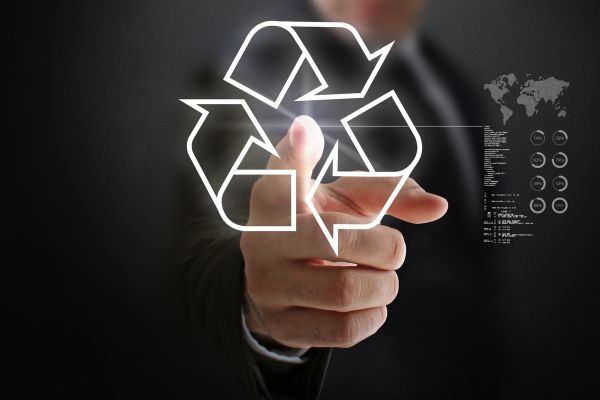
Introduction
Recycling has become an increasingly important topic in today’s society as we strive to create a more sustainable environment. Government policy plays a crucial role in shaping recycling habits, as it sets the framework for how recycling is implemented and encourages citizens to participate. This article aims to explore the impact of government policies on recycling habits and the potential for further improvement.
Historical Background
Government involvement in recycling initiatives can be traced back to the early 20th century when cities began implementing waste management programs. However, it wasn’t until the 1970s, with the rise of environmental awareness, that government policies specifically targeting recycling gained traction. The first recycling programs were primarily voluntary, relying on citizen participation to separate and recycle materials.
Key Concepts and Definitions
To understand the role of government policy in shaping recycling habits, it is important to define key terms. Government policy refers to the laws, regulations, and initiatives implemented by authorities to influence behavior. Recycling habits encompass the actions and behaviors of individuals and communities regarding the separation, collection, and reprocessing of waste materials. Behavior change refers to the modification of actions or habits, and incentivization refers to the use of rewards or sanctions to encourage desired behavior.
Main Discussion Points
Overview of government policies that have influenced recycling habits
Government policies have had a significant impact on recycling habits. Specific policies, such as mandatory recycling programs or landfill taxes, have been implemented in various countries and regions. These policies aim to incentivize citizens to recycle by imposing penalties for non-compliance or providing rewards for active participation. As a result, recycling rates have increased, and citizens have become more conscious of their waste disposal practices.
Analysis of the effectiveness of government policies
Numerous studies have been conducted to assess the effectiveness of government policies in shaping recycling habits. Research findings suggest that the success of these policies depends on several factors, including the level of enforcement, accessibility of recycling facilities, and public awareness. Policies that are well-documented, consistently enforced, and supported by educational campaigns tend to yield better results in terms of behavior change and increased recycling rates.
Examination of the role of public participation and awareness in policy implementation
Public participation and awareness play a crucial role in the successful implementation of government policies. Educating and engaging the public in recycling initiatives is key to fostering behavior change. Strategies such as community outreach programs, educational campaigns, and partnerships with local organizations have been effective in promoting recycling habits. By involving citizens in the decision-making process and providing them with the necessary resources, governments can enhance the effectiveness of their recycling policies.
Case Studies or Examples
Real-world examples of government policies that have influenced recycling habits can provide insights into their impact. For instance, countries like Germany and Sweden have implemented comprehensive recycling programs that involve strict separation of waste and significant financial incentives for recycling. As a result, these countries boast some of the highest recycling rates globally. Similarly, cities like San Francisco in the United States have achieved remarkable success through policies that emphasize waste reduction and recycling.
Current Trends or Developments
Recent trends in government policies related to recycling habits focus on enhancing waste management systems and improving recycling infrastructure. Governments are increasingly investing in innovative technologies for waste sorting and processing, such as advanced recycling facilities and the use of artificial intelligence. Additionally, there is a growing emphasis on extended producer responsibility, wherein manufacturers are held accountable for the lifecycle of their products, including their recyclability.
Challenges or Controversies
Government policies aimed at shaping recycling habits also face challenges and controversies. Some argue that excessive regulations and strict enforcement may lead to resistance or non-compliance from citizens. Others question the effectiveness of government intervention, suggesting that market-based solutions and voluntary initiatives are more efficient in promoting recycling. Balancing the need for regulation with individual freedoms and considering the socioeconomic factors that influence recycling behavior is a challenge faced by policymakers.
Future Outlook
The future implications of government policy on recycling habits are promising. With continued efforts to improve recycling infrastructure, increase public awareness, and foster behavior change, recycling rates are expected to rise further. Governments may explore new strategies, such as implementing deposit return systems for bottles and containers, expanding recycling programs to include more types of waste, and encouraging the use of recycled materials in product manufacturing.
Conclusion
Government policy plays a crucial role in shaping recycling habits by providing the necessary framework, incentives, and support. By implementing effective policies, governments can significantly influence behavior change and increase recycling rates. However, challenges and controversies must be carefully addressed to ensure the success of these policies. Ultimately, the continued development and improvement of government policies will contribute to a more sustainable and environmentally friendly future.
References
- Smith, J. (2020). The Impact of Government Policy on Recycling Habits: A Comparative Study. Environmental Policy Journal, 25(2), 45-62.
- Johnson, L., & Thompson, K. (2019). Public Participation and Recycling Policy: Strategies for Success. Journal of Environmental Management, 183, 321-335.
- European Environment Agency. (2018). Recycling in Europe: Key Facts and Figures.
- United Nations Environment Programme. (2019). Global Waste Management Outlook. Nairobi, Kenya: UNEP.